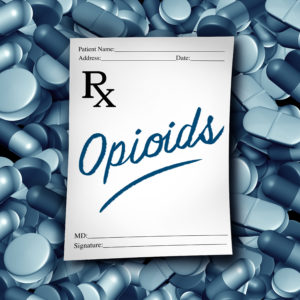Earlier this week, Iowa House Republicans announced a legislative initiative for the 2018 session to aid in the state’s responsibility in preventing both opioid addiction and overdoses.
Scheduled to be reviewed by the House Human Resources Committee next week, House File 2299 focuses on the prevention of “doctor shopping” for patients to get opioid prescriptions, while reducing over-prescribing of pills, and providing support to those with addiction.
According to the Iowa Department of Public Health (IDPH), since 2005, the number of opioid treatments increased from 608 to 2,274 in 2016. Over that same time period, annual opioid overdose deaths rose from 28 to 67, and opioid related deaths rose from 59 to 146. Nationally, according to the American Society of Addiction Medicine, opioid addiction was the cause of 20,101 overdose deaths related to prescription pain relievers, and 12,990 overdose deaths related to heroin in 2015.
“While Iowa isn’t seeing the same level of epidemic on the east coast or even Ohio and some of our other neighbors,” said Speaker of the House Linda Upmeyer (R-District 54), “we certainly recognize the threat. We know many people become addicted to opioids following surgery or injury where they’ve taken medication and perhaps think they’re supposed to finish the bottle because that’s what they were prescribed, then they find themselves unable to very comfortably go without that medication and that drug, and so they become dependent and ultimately spiral into a problem where we find people instead of using pain killers, turning to heroin.”
IDPH attributes the increase in opioid related deaths to the prevalence of prescriptions for narcotics to patients with injuries or recent surgeries. Citing the Centers for Disease Control and Prevention (CDC), in 2012, health care providers wrote 259 million prescriptions for opioid pain relievers, which was “enough for every American adult to have a bottle of pills.” Additionally, prescription opioid sales in the U.S have increased by 300 percent since 1999, even though more Americans have not been reporting pain.
According to Upmeyer, while total prescriptions for opioids have decreased in Iowa, approximately 33 percent of Iowa counties saw an increase in the amount of opioid prescriptions written.
The bill aims to regulate the prescription of opioids and other narcotics through mandating use of the the Prescription Monitoring Program (PMP). Practitioners would have to register under penalty of law to the PMP when registering with the Board of Pharmacy, and would have to input their prescription of an opioid or other narcotic into the system upon prescribing to a patient. Under law, when a pharmacy fills that prescription, the database must be updated to reflect the filled prescription within 24 hours. In addition, in order to stop over-prescribing and prescribing to patients who are at high-risk for opioid addiction, first responders who administer Narcan or other opioid antagonists to overdose victims must report their use to the PMP. In order to maintain the system, fees will be charged upon registering.
To avoid forgery of any and all prescriptions, practitioners would have to transmit all prescriptions electronically to a pharmacy. If a prescription is not filed electronically, a fine of $250 would be imposed on the practitioner, with the maximum fine total not to exceed $5,000.
In order to encourage more reports of overdose, the bill establishes a good samaritan clause that would not endanger the individual who reports an overdose, and would allow he or she to stay on the scene when help arrives.
“We will make sure [the clause] is not being overused or aiding in people profiting off of illegal distribution of drugs,” said Jarad Kline (R-District 78), a member of the House Public Safety Committee. “Our goal is intervention, not incarceration.”
The bill also mandates annual reviews of practitioner habits, as well as identifying at-risk individuals for addiction.

